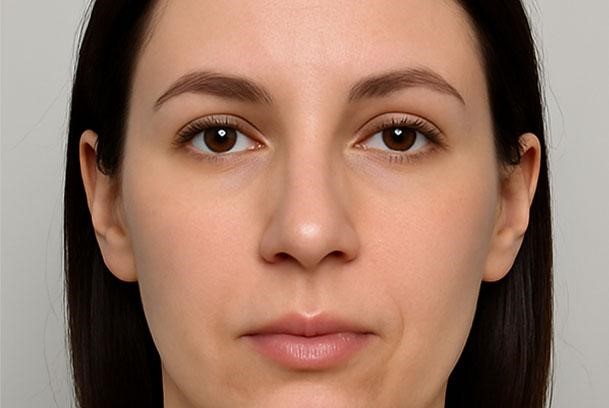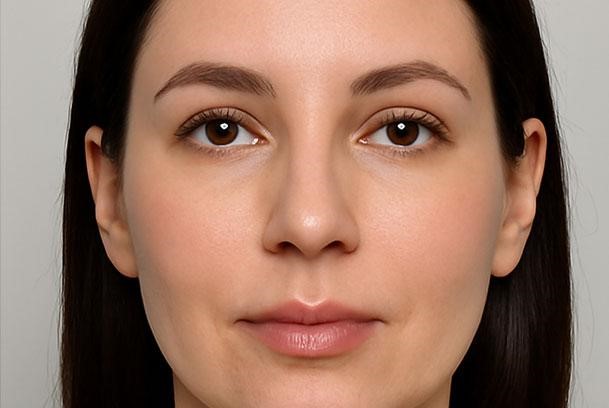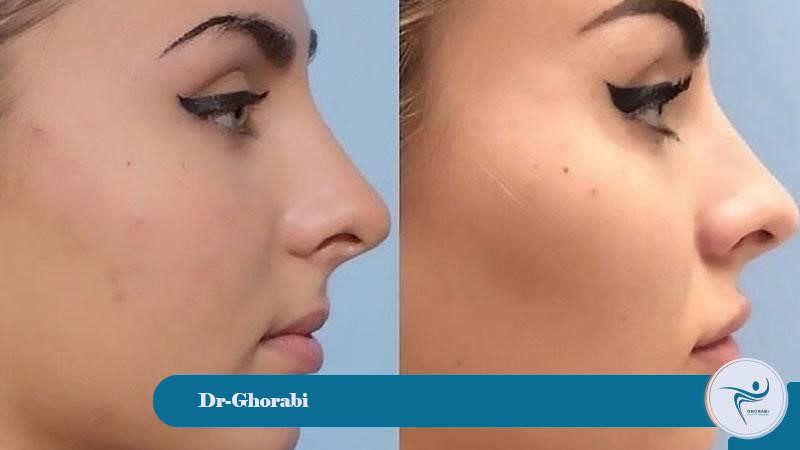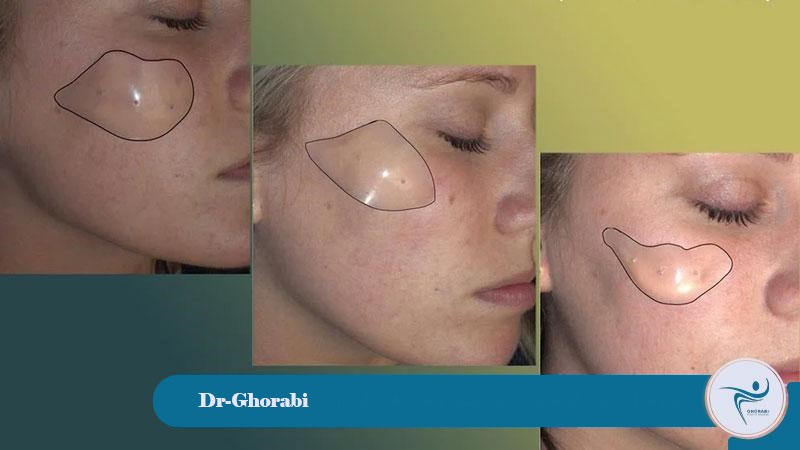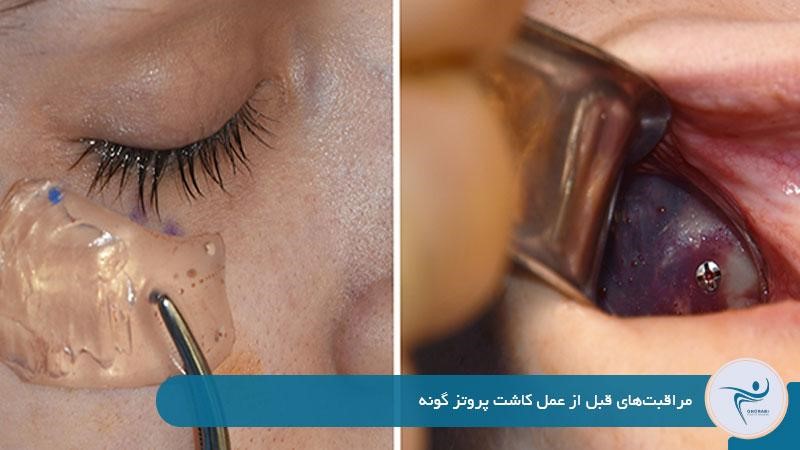Cheek implants are one of the methods of facial rejuvenation that help increase volume and lift the cheeks. If you have noticed sagging or decreased prominence of your cheeks with age, this surgery may be a suitable solution for you. In this procedure, the surgeon places implants inside the cheek to give your face a more natural, balanced, and prominent appearance.
Prosthetics are usually made of silicone or composite materials. Silicone prosthetics are a safe and common option that can be removed if desired. However, composite prosthetics gradually integrate with the cheekbone over time, becoming part of the natural facial tissue.
Suitable Candidate for Cheek Implant Surgery; Are You a Suitable Candidate for This Procedure?
Before any type of cosmetic surgery such as neck lift and face lift or cheek and chin implants, you must consult with a specialist doctor and through relevant tests find out if you are a suitable candidate. Generally, people who do not smoke and are in good general health are considered suitable for this surgery. However, all this depends on the doctor’s judgment, and a definitive opinion cannot be given before examination.
Types of cheek implants based on material, placement, and their application in cosmetic surgery
Cheek implants are made from biocompatible materials to ensure complete compatibility with the human body. Types of implants can be categorized by material and placement:
- Silicone: Silicone implants are flexible, soft, and reversible. In other words, if the patient is dissatisfied with the results, removing them is relatively simple; they can be removed through an incision inside the mouth or lower eyelid if the patient is unhappy. Most surgeons consider this material safe and suitable for cheek implants. Unlike silicone implants, cheek bone surgery is irreversible or very difficult to reverse, and its results are usually permanent and lasting.
- Porous polyethylene: This type of implant allows surrounding tissue to grow into it, helping to better secure it in place. Removing the implant in this method is a difficult process and sometimes involves damage to the surrounding tissue.
- Submalar implant: Submalar implants are used to increase volume in the area below the cheekbone, especially in cases of facial fat loss.
- Malar shelf implant: This method is used to create a bony prominence in the outer cheek area.
- Combined submalar implant: This implant is used when the individual has fat loss in the area below the cheekbone and also needs prominence in the cheekbone area.
The type and location of the implant are chosen based on the individual’s anatomy and the patient’s aesthetic goals.
Stages of cheek implant surgery
Cheek augmentation or implant surgery. Cheek lift is usually performed as an outpatient procedure under local anesthesia with sedation, or in some cases under general anesthesia. The procedure takes between one and two hours.
In the cheek implant procedure, anesthesia or sedation is first administered to ensure the patient’s comfort during the surgery. Then, the surgeon makes an incision, often inside the mouth in front of the upper gum to avoid visible scarring on the face; however, in some specific cases, the incision may be made from the area below the lower eyelid. After making the incision, the necessary space in the cheek tissue is created to place the implant, and the surgeon positions the implant. In some cases, a small screw is used to attach the implant to the bone for increased stability. Finally, the surgical area is sutured, and the procedure is completed.
Visitor comments
Pre-operative care for cheek implant surgery; measures for a better outcome
Before performing any facial cosmetic procedure and cheek implant surgery, observing certain essential points is necessary to achieve better results and make the recovery period easier. Pre-operative care for cheek implant surgery includes the following:
- Choose a physician who has an official license and sufficient experience in cheek implant surgery.
- Discuss your expectations with your physician and obtain information about the type of implant, the surgical procedure, and the possible results.
- Complete all prescribed tests to have your health status checked.
- Inform your physician about your illnesses, allergies, and medications.
- Stop taking medications such as aspirin and ibuprofen several weeks before, in consultation with your physician.
- Do not consume Vitamin E, fish oil, and supplements that increase the risk of bleeding.
- Avoid smoking and alcohol at least two weeks before the surgery to improve the healing process.
- Do not eat or drink anything from midnight before the surgery.
- On the day of surgery, wear loose and comfortable clothing to avoid any problems during changes.
By observing these points, you can prepare yourself well for surgery and have an easier recovery.
Post-operative care for permanent cheek implants; reducing complications and recovery time
Just as you should pay attention to post-operative care before procedures such as facial fat transfer,cheek lifts, brow lifts, and other cosmetic surgeries, the same applies to cheek implants. By following the points below, you can make your recovery faster and safer:
- Take prescribed pain medication as directed.
- Using non-steroidal anti-inflammatory drugs will help reduce swelling.
- In the first 24 to 48 hours, apply ice to the surgical area to reduce bruising and swelling.
- When sleeping, keep your head elevated to prevent fluid accumulation.
- Rinse your mouth with an antiseptic solution, but do not use dental floss or strong detergents.
- Eat soft and liquid foods and avoid hot or spicy foods.
- Avoid strenuous exercise and lifting heavy objects for at least one week.
- According to the schedule, for checking the recovery process, visit your cosmetic surgeon for follow-up appointments.
- If you have non-absorbable stitches, have them removed at the scheduled time.
- If you experience excessive redness, fever, pus, or increased pain, contact your doctor immediately.
Following these instructions will help you go through the recovery period without problems and be satisfied with the final result of the surgery.
Side effects of cheek implants in men and women; potential risks of this surgery
Cheek implants, like other types. Facelift surgery may be accompanied by complications, some of which are controllable. Among the most common complications of cheek implants are:
- Cheek implants may cause infection in the surgical area.
- Swelling and bruising are normal after the operation, but sometimes they are long-lasting.
- In some cases, the implant does not harmonize with the shape of the face and causes asymmetry.
- There is a possibility of bleeding and damage to surrounding tissues or nerves.
- Anesthesia complications such as breathing or heart rate disorders may occur.
- Sometimes the structure of the cheekbone undergoes permanent and irreversible changes.
- Over time, there may be a need to adjust or replace the implant.
- The price of cheek implant surgery is high and is usually not covered by insurance.
If the surgery is performed by an experienced and specialized physician, most of these complications are controllable.
Choosing the right surgeon for cheek implants guarantees your health.
Before undergoing cheek augmentation or any type of facial cosmetic surgery, choosing a skillful and experienced surgeon plays a crucial role in your health and beauty; therefore, research thoroughly to choose a good surgeon, ask for the opinions of other patients, and review the doctor’s portfolio.
Among various surgeons, Dr. Gholamhossein Ghorabi, Plastic Surgeon With free pre-operative consultation and various tests, and a thorough facial examination, he will guide you and determine whether you are a suitable candidate for this surgery. As a result, you can confidently undergo cheek augmentation with him after reviewing his portfolio.
About DR. Ghorabi
Get to know/Meet Dr. Ghorabi.
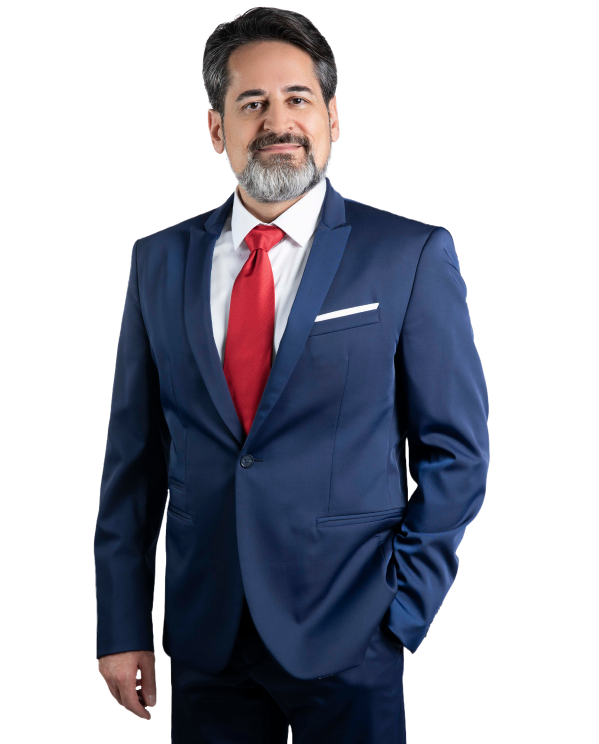
About DR. Ghorabi
Get to know/Meet Dr. Ghorabi.
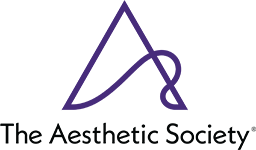
Fellow of the American Academy of Facial Plastic and Reconstructive Surgery (AAFPRS) or a similar organization such as the American Society of Plastic Surgeons (ASPS).

Official member of the International Society of Plastic and Aesthetic Surgeons
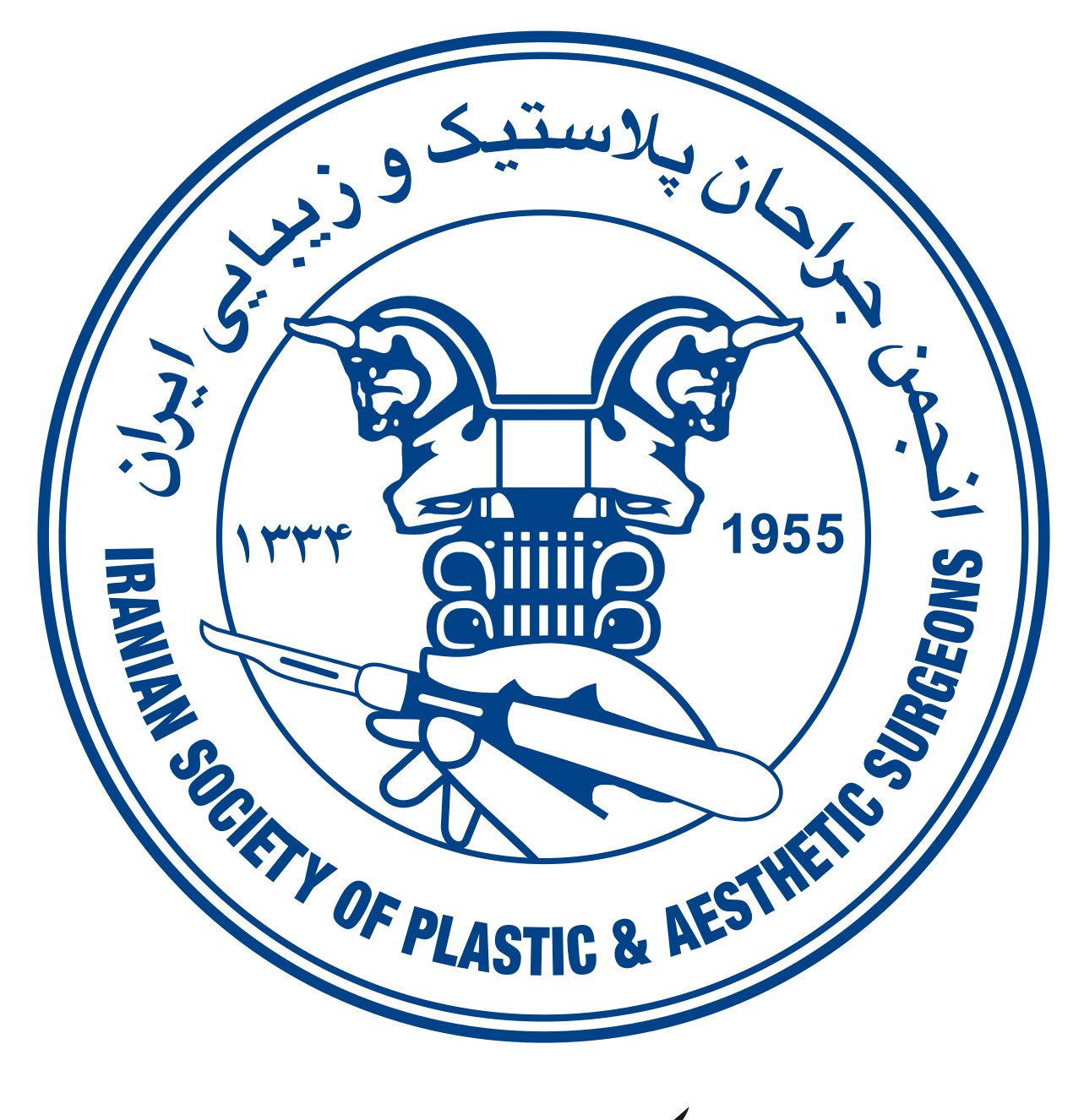
Official member of the Iranian Association of Plastic and Reconstructive Surgeons
